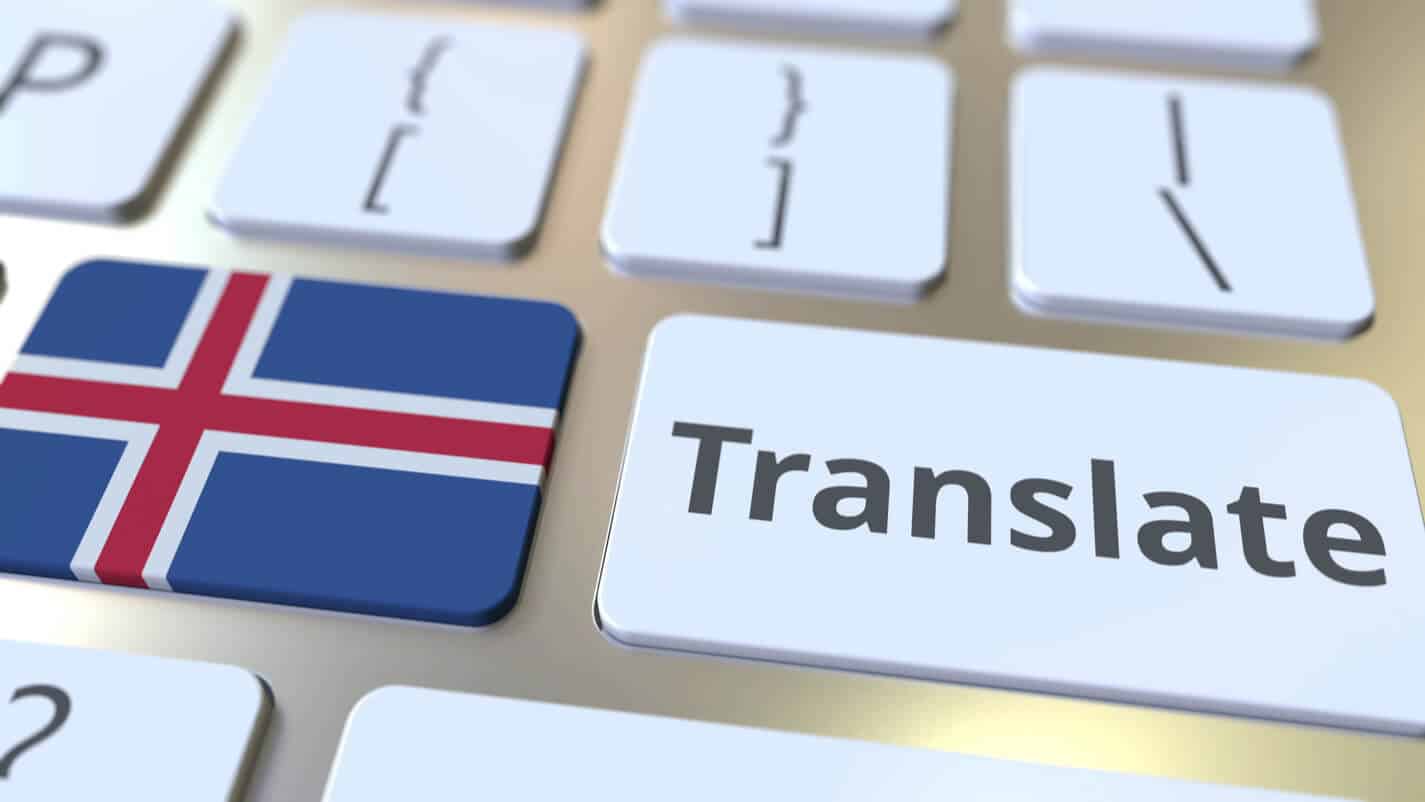We’re pretty used to hearing that language is just another means of communication. It has to be effective and tends to evolve so that fewer words encompass more concepts. When we learn a foreign language, we often feel the need to find the exact word to express our thoughts. That one expression that we use all the time in our native language that we absolutely must find in another language. But what happens when it simply doesn’t exist? Today I want to share with you a few Icelandic words that have no translation. Or maybe you can help me find it?

I guess all of our language teachers told us the same thing in class. Words are meant to express ideas in the most efficient way possible. What happens is that sometimes we lose sight of the fact that ideas are usually conceived by people. And people are not all alike, nor do they all think in the same way. Surely you see life slightly differently when you compare yourself with your best friend. Well, imagine that comparison at the larger or national levels.
The cultural component is something that is very linked to language. Languages not only carry ideas, but they also reflect our personality and our way of being and conceiving the world. What surrounds us also affects our speech. For example, due to their climate, the Finns have forty words for “snow”. This is normal, given that they live surrounded by it almost all year round. When I came to Spain for the first time, I did not know of the existence of some national languages other than Spanish. Now I know that in Galician, for example, there are more than 70 words for “rain”. This is a wet, coastal region, so it’s fitting. Well, something similar happens in Iceland. We have words that could only occur on our little Nordic island. They describe us, delineate our culture and trace the nuances that differentiate us from other peoples in Scandinavia and around the world.
Untranslateable Icelandic Words
Gluggaveður
Have you ever had one those days when you take a look out the window to see what the weather’s like and you feel happy? For example, you’re in a cafeteria with a cup of hot coffee. Suddenly, it starts to snow, and everything looks like a fairy tale. Or on a sunny day, you see the leaves on the trees blowing gently in the breeze. Or you are sipping a warm cup of with a tea or coffee at home, and it starts to rain. You see the raindrops splash against the window. You think, how relaxing! And you get hypnotized by the rhythmic sound of trickling rain.
Great, now head out onto the street. It’s not so nice now, is it? Suddenly those pretty snowflakes turn your eyelashes into icicles. The modest breeze turns out to be more of a gale. The cadenced drops of water become a biblical flood. And the few rays of sunlight that peek through the clouds aren’t enough to warm your bones when the temperature is below freezing. Well, this is exactly what Gluggaveður is.
The word literally means “window weather” and describes that type of climate that, in reality, is really lovely but is meant to be experienced from the safety of a window. If you go out, it’s neither pleasant nor beautiful. You’ll encounter this a lot and will probably need to find some activities to do in bad weather.

Vesen
Maybe this word will be part of your vocabulary from now on. Being able to describe what happens so frequently is absolutely essential.
Let’s say that your good friend asks you to drive them all the way across town to buy something that they can easily get at the store next to their house. That’s what vesen is. Your mother makes you trek all the way around your neighborhood to find good rye bread because the normal bread “isn’t as good”. That is vesen. When you go to an office to deliver documents, and they don’t accept them because you used a blue pen instead of black. Another perfect example of vesen. Normally anything related to bureaucracy, paperwork, or offices is vesen squared.
If you haven’t figured it out, vesen is when something that should be easy and uncomplicated becomes way more cumbersome and convoluted than strictly necessary.
Jæja
Not so much a word, it’s more of an interjection. It is everything and nothing. The alpha and the omega of Icelandic. The perfect joker. It can’t really be translated because essentially, its meaning is variable and changes depending on the situation and the context. It is so versatile that it the meaning change depending on the way the speaker says it. It’s perfect for first timers to get their linguistic feet wet. Here are some examples of how to use jæja.
#1 Jæja? = Have you finished?
#2 Jæja? = How are you?
#3 Jæja! = Come on!
#4 Jæja! = Thank goodness!
#5 Jæja… = That’s weird…
#6 Jæja = How disappointing.
#7 Jæja = It’s fine.
It can be an ok, a wow! a no way!, an aha!, a hmmm…, an ah! an ugh! and anything else that comes to mind. You can easily speak Icelandic just by saying Jæja to your gracious Nordic host a few times.

Skreppa
Skreppa literally means “to slip” but it has a very specific subtlety. If I had to translate it in some way, I suppose it would be something like ” slip away or get away for a little bit to take care of some personal business”. Are you at work and have to go pick something up, go to the doctor, or do something else for a little while? Well, you tell your boss “skreppa” and there’s little more to say. Now, if you do it constantly and take advantage, then it’s no longer skreppa. It kind of turns into playing hooky.
Duglegur
This word is an adjective. When it’s used for women, it’s spelled dugleg, and for men, it is written duglegur. It is a blend of multiple meanings in one. It refers to a diligent, hardworking, competent person with integrity and a steady temperament. Yes, it means all those things at once.
The problem when it comes to translating a world like this is that you can’t use just one of the descriptors. Part of the word comes from “dugnaður” which is related to how ready and willing someone is to do something. To be active and energetic. “Duga” has an etymology that in turn means to be enough, to be worth something. So the rough translation would be: a person whose character and speed makes it expressly sufficient or valid for certain things. Complicated, right?
Icelandic Words With No Translation
So what do you think? Have you been able to find a translation that sums these ideas up in one word? If so, please go ahead and leave it in the comments. Do you know words that don’t really have a translation in other languages? You already know that I am quite a linguistic nerd, so I would love to learn more about this fascinating topic.




